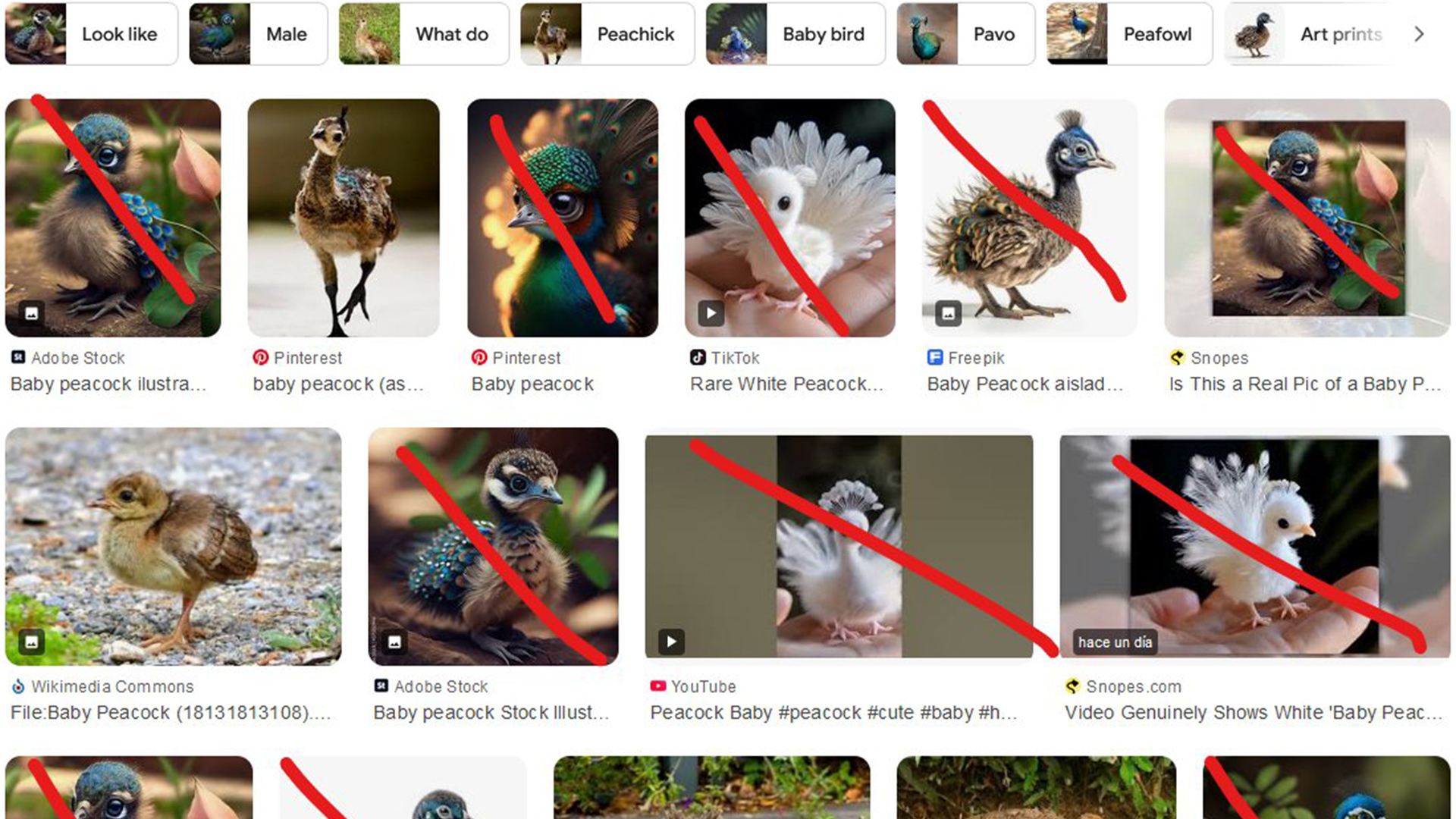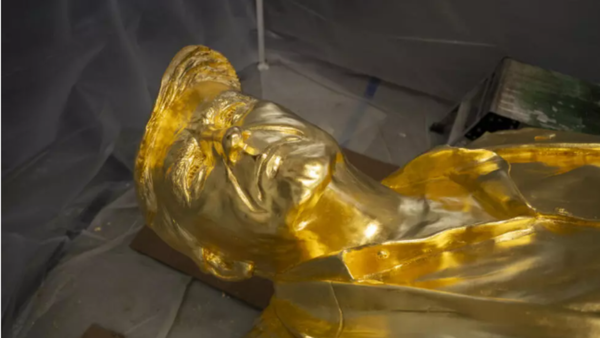
A Google image search screenshot has ruffled feathers online after it showed more AI-generated results than real-world examples of baby peacocks. Is it a little random? Yes, but the screenshot has sparked mass debate online, with many creatives calling for stricter rules for AI-generated search results to mitigate the spread of misinformation.
With so many AI image generators at our fingertips, it's natural that these artificially augmented pictures would seep their way into the wider web. Increasingly, we're seeing examples of AI being hijacked to spread misleading information, most recently in the ongoing presidential race, pointing to a wider issue with the regulation and labelling of AI-generated content.
Google está muerto. https://t.co/DRxCnjz9cF pic.twitter.com/1PFMZIUvqQOctober 5, 2024
Originally posted by X user @notengoprisa, the viral screenshot shows fifteen results for the simple search term "baby peacock". Among the selection, only four of the results are real images, with the vast majority being fake, overly pristine AI-generated pictures – including the very first result. While those of us who are accustomed to the uncanny Gaussian blurred sheen on an AI-generated image will recognise it almost immediately, it's troubling to see just how prevalent fake AI images have become.
Over on the r/graphic_design subreddit, creatives were voicing their strong opinions on the rise of AI-generated search results. "It's really sad how much AI slop is even on art inspiration websites now. I'm a graphic design community college student and we do mood boards before every project. It's become increasingly harder to find QUALITY pieces now to pull inspiration from that are still related to my search query," one user commented. "Generative AI really seems to be the most overwhelmingly net-negative tech advancement in my lifetime, and (unless I'm forgetting something major) it isn't even close," another added.
Search engines need an option to filter out AI-generated content and legislation needs to get on establishing and enforcing AI guidelines—before search engines like Google become entirely unreliable. https://t.co/ascK9YsYZNOctober 7, 2024
AI has officially killed the ability to find good reference images from a google search. cool. pic.twitter.com/2ZvdZR0ZiFSeptember 30, 2024
It's disappointing to see the infiltration of AI images in Google's search results, given that for many it's a first port of call, particularly for artists who need a reliable source for reference images. AI learns from its surroundings, and as AI-generated content continues to seep into the internet, it'll likely fall into a self-cannibalising loop. The best we can do is be vigilant of AI misinformation and continue to raise awareness when it threatens human creativity.
For more AI news, check out Snoop Dogg’s new AI music video that appropriates stop-motion animation. It's not just Google, social media is increasingly getting flooded with AI content. If you're looking for an alternative platform, take a look at Cara, the anti-AI social media platform for artists, and see how users are reclaiming their community.







